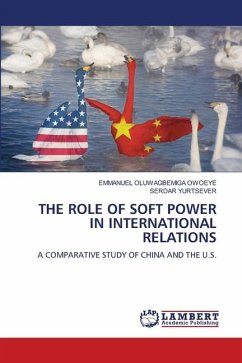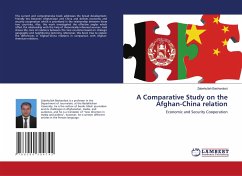
Conceptualising The Impact of Past Wars in International Relations
A Habermasian approach to the study of Collective War Memories in IR - illustrated by recent Franco-German Relations
Versandkostenfrei!
Versandfertig in 6-10 Tagen
58,99 €
inkl. MwSt.

PAYBACK Punkte
29 °P sammeln!
There is ample evidence that collective war memories influence international relations and domestic politics. However, just how this influence can be conceptualised, remains mainly unaddressed. This book aims to do so by providing an approach heavily informed by Jürgen Habermas. Using Habermas concept of social learning, this book argues that remembering past wars can take place in different stages. The usefulness of this concept is exemplified by stages of remembering wars in France and Germany. Habermas second concept, that of political legitimacy provides a useful and critical research age...
There is ample evidence that collective war memories influence international relations and domestic politics. However, just how this influence can be conceptualised, remains mainly unaddressed. This book aims to do so by providing an approach heavily informed by Jürgen Habermas. Using Habermas concept of social learning, this book argues that remembering past wars can take place in different stages. The usefulness of this concept is exemplified by stages of remembering wars in France and Germany. Habermas second concept, that of political legitimacy provides a useful and critical research agenda to evaluate the importance of legitimising foreign and international politics. The usefulness of this concept is illustrated by analysing two moments in the Franco-German relation, the attempts to form a European Defence Community in 1954 and the European Monetary Union in 1991-1992. The book also shows how these two Habermasian concepts help to formulate a critical practice towards the remembering of wars and its impact on politics. This book should appeal not only to the IR academic community, but also to sociologists as well as practitioners of conflict resolution and peacebuilding.












